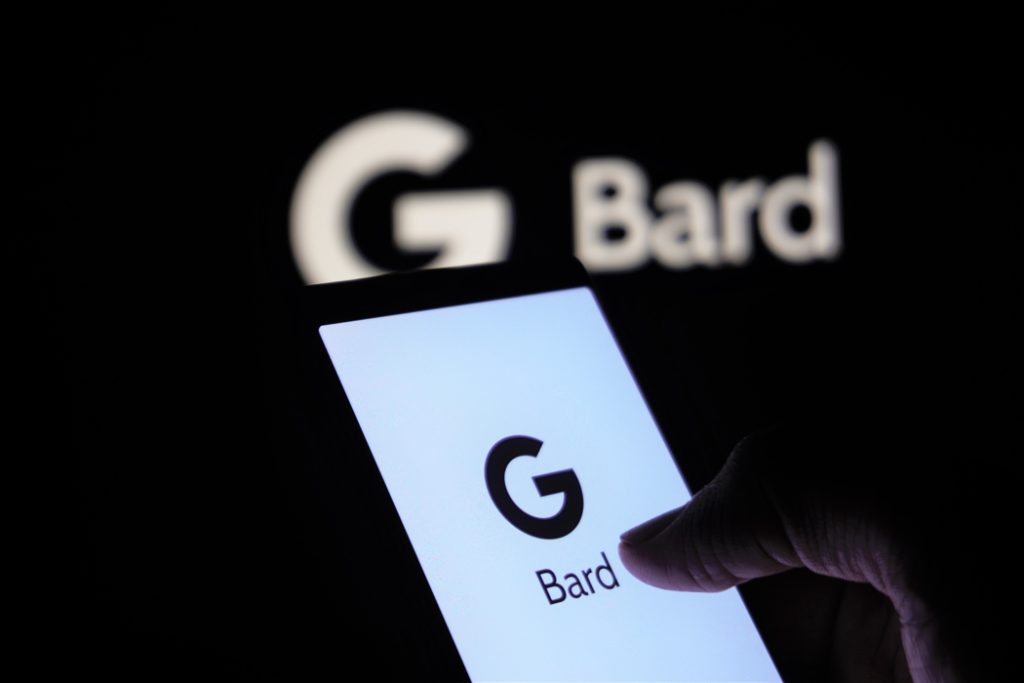
My friend Burton was a holdout. He said AI was taking over the world and he didn’t want to be part of it.
This was especially surprising, because he had seen what it could do. Early on, when I excitedly told him about AI, he invited me to ask it to write a sonnet using iambic pentameter. He was astonished by the result. Then he asked me to have AI write a summary of his book for the back cover of the next edition. Claude AI (Claude.ai) read the 62-page book and wrote a summary in less than a minute. Burton said it was better than he could have done and he’s going to use it. He’ll just change two words.
And that’s not all. He had me ask ChatGPT (Chat.openai.com) for instructions on formatting his book in Microsoft Word. He found them to be exactly what he needed.
So when we were having lunch recently, I again suggested he try AI. I told him about Google’s Bard (Bard. Google.com). Unlike industry leader ChatGPT Plus, it’s free. Google had just come out with a new version based on their Gemini technology, and it was generating a lot of hype. He said no.
But then the next morning I got an email from him:
“Well, I tried a few questions for Bard and agree that it’s a fascinating reservoir of information expressed in very articulate language. I was surprised how easily I went to ‘Bard’ and how easily it welcomed my prompt with no further ado. Its simplicity and openness pleased me, and I’m sure I’ll use it again and again as the days flow by.
“Bard gets right to the point, neither too much nor too little information. Just right, like Baby Bear’s porridge!
“I formulated about six prompts, including: Does two and two always equal four? How did Joe Namath and the New York Jets win the Super Bowl against Baltimore? And is there a chance Michelle Obama will run for President?”
Burton is a convert.
The hype surrounding Gemini relates to how smart it is. In their announcement, Google said their new Gemini model got a score of 90 percent on the Massive Multitask Language Understanding test. According to a review, “It’s the first model to outperform human experts (89.8 percent), as well as GPT-4 (86.4 percent) in a range of knowledge and problem-solving tasks across a range of 57 subjects, including math, physics, history, law, medicine, and ethics.”
In other words, it’s smarter than I am.
Google had been working on AI for 10 years and had no intention of releasing a chatbot until they were sure that it was safe and accurate. But then in late 2022, Open-AI released ChatGPT 3.5, attracting one million users within a week and 100 million within two months. Suddenly Google and all the other big tech companies were scrambling to release their chatbots.
Google released Bard in March of 2023. It was useful but not at the level of the free ChatGPT 3.5. Meanwhile, they continued to develop their more sophisticated Gemini model. It’s unlike ChatGPT and the others, which are typically based on Large Language Models that hoover up billions of words from the internet into computer programs called neural networks that have features similar to a brain. Google, however, not only sucked in words but also video, audio, and images. It’s multimodal from the ground up, part of the reason why it’s potentially well beyond the level of the paid service ChatGPT Plus, which is based on ChatGPT-4.
Google refers to this as Gemini Ultra. This version is not yet available as I write this and will initially be available to data centers and large enterprises when it arrives this year. What’s available now in Bard is Gemini Pro. As Burton so aptly describes, it’s a useful tool and probably at least beyond the capability of the free ChatGPT 3.5.
Google knows its search engine is quaint in the age of AI, and apparently intends to merge Gemini Pro into search, its Chrome browser, and its many other offerings. In other words, all AI all the time. For now, though, Bard is a standalone and deserves your consideration.
AI is wonderful, but the huge data warehouses that run it consume vast quantities of electricity and thereby contribute to global warming. A single ChatGPT prompt costs an estimated 36¢. OpenAI is losing money, even with their $20 a month ChatGPT Plus.
However, Google also announced Gemini Nano, which is a svelte Large Language Model that can actually run on a smartphone without being connected to the internet. This is hugely significant. It’s available now in specific features on Google’s Pixel smartphone and will gradually become more widely available in smartphones and other devices.
Maybe even in my toaster: “I’d like my toast golden brown today.” This will truly be all AI all the time. Burton will be pleased.
After this column was published, Google rebranded Bard as Gemini. The URL bard.google.com automatically redirects to gemini.google.com. In addition, their most powerful AI, Gemini Ultra, is now available as Gemini Advanced for $20/month. A two-month trial is available. Reviews say it may be as good as ChatGPT Plus.
Find column archives at JimKarpen.com.
